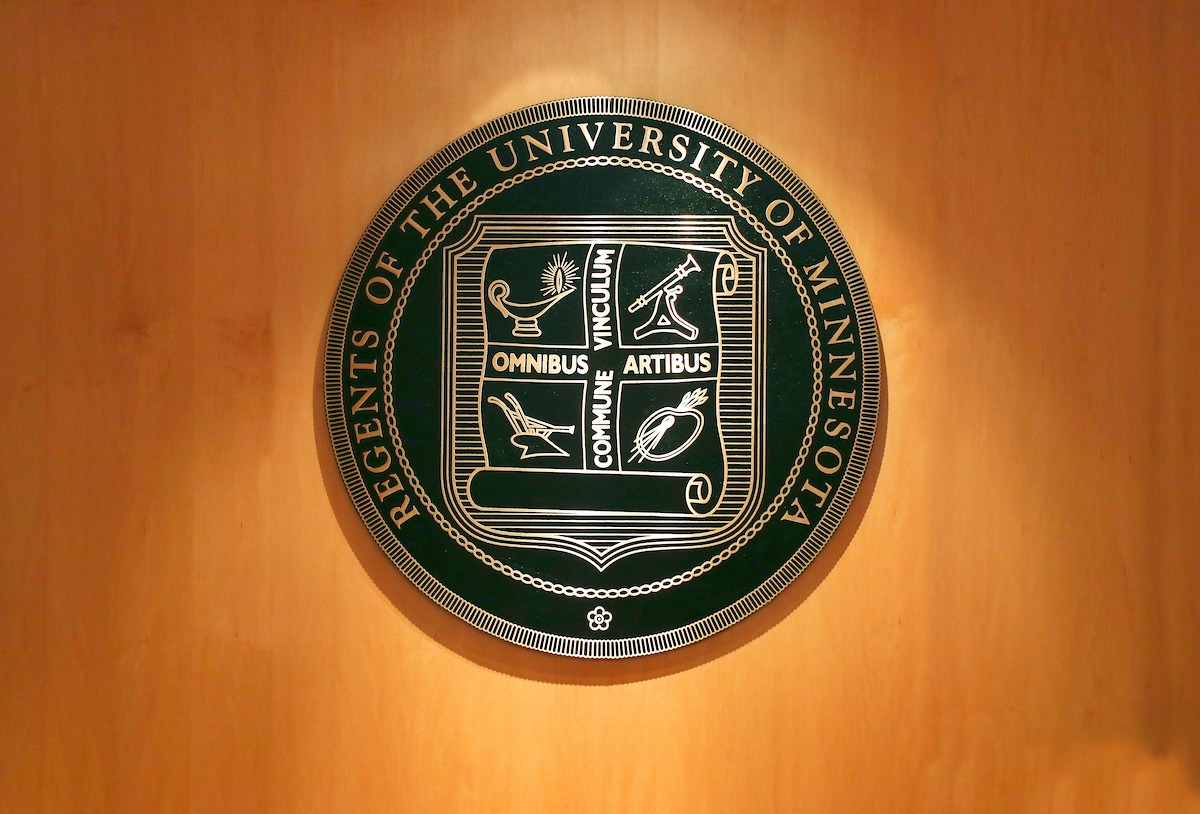Cal Mergendahl is a University of Minnesota graduate student, former Minnesota Daily columnist, and unrepentant opinion haver.
Back in July, I wrote an op-ed for MinnPost expressing my worry that Gov. Tim Walz, rather than picking from the slate of excellent University of Minnesota Board of Regents candidates forwarded by the Legislature, would appoint big-money donors through an unaccountable backroom process that would only reduce trust in the university and its leadership at the worst possible time.
Now that that outcome has come to pass, it’s worth reflecting on what the ramifications might be—and how we can do better next time.
Earlier this month, Walz announced four hand-picked appointments to the U’s 12-seat Board of Regents: Joel Bergstrom, Samuel Heins, Ellen Luger, and Kowsar Mohamed. Two Walz donors, Heins and Bergstrom, were surprise selections, while Luger (also a donor) and Mohamed were vetted by lawmakers. (Typically, lawmakers fill vacant board seats with six-year appointments, but Walz acquired the rare power to do it himself when the Legislature ran out of time during June’s special session.)
Republicans immediately seized upon the appointments, highlighting certain political donations made by some candidates (especially Democratic mega-donor Heins). DFL politicians appeared split: House Higher Education Co-Chair Dan Wolgamott (DFL-St. Cloud) declared that he was “really impressed” with the picks, but Senate higher ed chair, Minneapolis mayoral candidate, and Racket-accredited taco enjoyer Omar Fateh slammed Walz for picking candidates who never bothered with the public, Legislature-managed appointment process. A Walz spokesperson defended the governor’s selections as “highly qualified.”
One obvious loss is that quality candidates from both the DFL and GOP slates were passed over. Dylan Young, a master’s student in public policy at the Humphrey School, well-known for his response to former Board of Regents Vice-Chair Steve Sviggum’s 2022 racist remarks about the Morris campus, received heavy support from student and labor organizations across the U of M system for his focus on affordability and equity. Jamal Adam touted his “GED-to-PhD” experience, along with the ways that background had informed his education nonprofit work. Ann Sheldon served as the University of Minnesota Alumni Association’s (UMAA) board chair and sat on the search committee for the university’s current president; her understanding of the university’s structure and leadership would no doubt have proven valuable. Flora Yang, the GOP-backed former president of the Undergraduate Student Government on the Twin Cities campus, would similarly have brought a wealth of institutional knowledge to the table, along with her perspective as a current medical student.
Any of these individuals would have been able to bring crucial insight and input to the Board. All of them went through a public vetting process before being forced to start back at the beginning with Walz’s office and go through another round of pointless interviews only to be shot down.
(Disclosure: As a former student government wonk, former ex-officio UMAA board member, Morris alum, and member of the Regent Candidate Advisory Council, I’ve known several of the above on a professional or personal level for years; make of that what you will.)
It’s possible that Heins and Bergstrom truly are “highly qualified” to meet the challenges facing the U. That said, plenty of regents with mile-long CVs, past and present, have not exactly inspired confidence. You could argue the current state of the board—highly qualified individuals without much experience in higher education or much stake in the wellbeing of students, faculty, and staff—are actively responsible for many of the problems plaguing this university. Personally, I’m not holding my breath for any big improvements.
Republican politicians such as Rep. Marion Rarick (R-Maple Lake) have put Walz on blast for appointing big DFL donors to the board and have defended the current legislative process. It is true that the status quo, which requires multiple public interviews and appearances, is a lot better than the governor’s black box. It is also true, however, that the current process is incredibly arcane and needs both legal reform and a general priority shift to make it less insider-dominated. Also conveniently absent from most GOP messaging up to this point? That two of their own preferred candidates, John Gibbs and Dan Wolter, are themselves GOP donors, which Wolter conspicuously failed to mention in his June op-ed bemoaning the Legislature’s failure to finish the job.
Should Walz have stacked the deck with his alleged cronies instead of making picks that would have actually benefitted the U? We already have an easy answer for that. The question of how we get better picks next time is more interesting. I propose the following ideas as a starting point for reform:
- In the event that the Legislature fails to select regents during a regular selection cycle, the governor must select candidates who have gone through a public interview process. No more donors sliding in the back door.
- Regents must disclose political donations in excess of a certain dollar amount. This would likely be controversial; appointments are supposed to be nonpartisan, after all. Realistically, though, the process is already intensely partisan. Most candidates that end up winning appointment do so by convincing one of the two parties to back them, and occasionally peeling away swing votes from the other party if needed. It should be harder for both the DFL and GOP to slide big donors under the rug out of the public’s view.
- The Regent Candidate Advisory Council (RCAC) should increase student, faculty, and union participation. This obscure body, responsible for the first round of candidate vetting in the legislative process, is an important hurdle to clear. Students and workers from across the U of M system should be represented accordingly given the outsized impact its decisions have on their lives.
- Candidates should spend less time meeting with legislators and special interest groups and more time meeting with students and workers. The current process strongly incentivizes prospective regents to camp out at the Capitol rather than engage with the university community itself. This trend should be reversed, possibly, for instance, by requiring candidates to receive an endorsement from a student group or campus labor union.
- The revolving door between the board and lobbying work should be closed. Former corporate lobbyists should not be able to rely on previous legislative connections to grease the wheels of their regent candidacies; likewise, former regents should not be able to turn around and begin pushing the Legislature to select their preferred candidates overnight.
- Designated seats should be set aside for faculty and staff respectively, similar to the student seat on the board. Hopefully self-explanatory.
Walz had the opportunity to make a set of transformative picks, a slate that would have provided unprecedented vision and opportunity for the University of Minnesota. We’ll still get a taste of this; Kowsar Mohamed, appointed to the student seat, brings unique experience from her background in youth organizing in Cedar-Riverside and her work in economic development for St. Paul and for the state, and I look forward to seeing how she handles the role. (Previous disclaimer about knowing people applies.)
But I’m disappointed overall: by Walz’s failure to appoint more student voices, to break out of the resume-driven approach to regent selections, and to avoid an utterly embarrassing and preventable own-goal by appointing his own donors to the seat.







